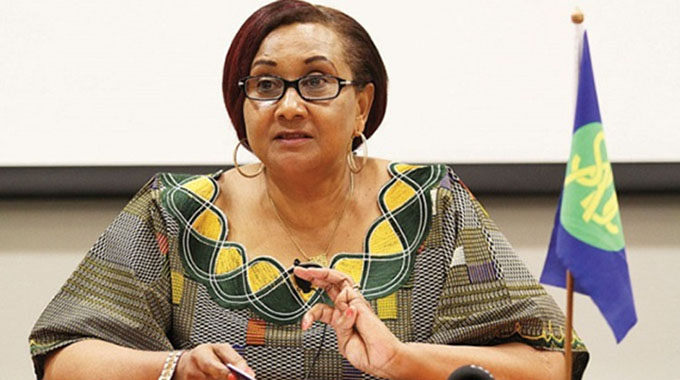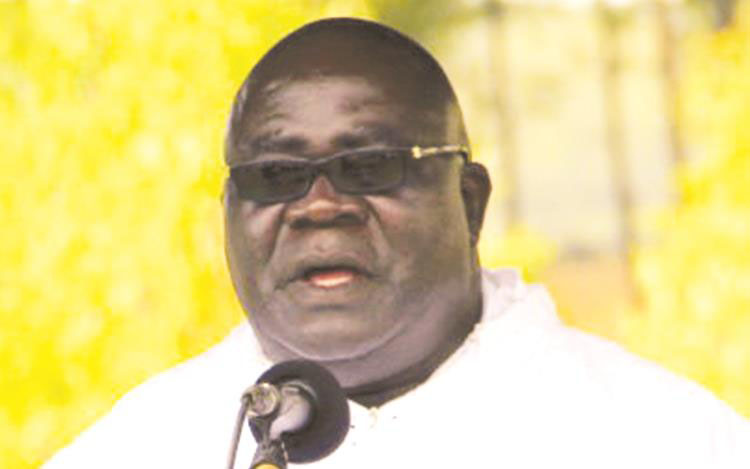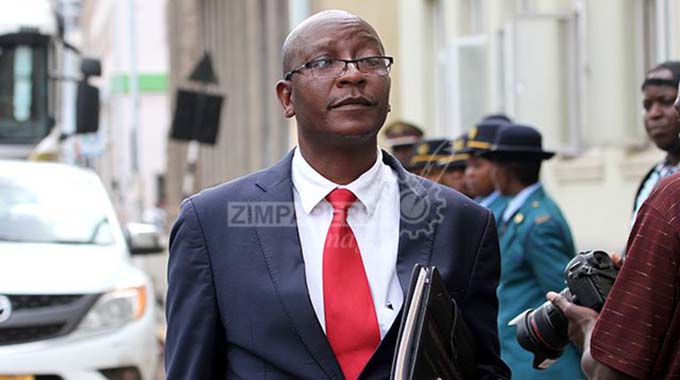Sadc’s anti-sanctions push and xenophobic attacks

Shelton Muchena Correspondent
The declaration by SADC countries to set aside a day against illegal sanctions imposed on the country by hostile Western forces, and the subsequent resolution to conduct various activities in their respective countries on October 25 to actively call for their immediate removal, must be placed within the context of ongoing xenophobic violence in South Africa.
The United States of America and its European Union (EU) sidekicks feel threatened by Sadc’s rallying behind Zimbabwe in the fight against sanctions.
The push against sanctions would have become the talking point in the region and the world at large given that more and more African states volunteered to amplify the call.
It is as clear as daylight that the only way to overshadow this event and blight it from gaining global traction was through nefarious plotting and funding these primitive and barbaric attacks to divide Africa ahead of October 25 by diverting attention.
In the 39th SADC Summit communiqué endorsed by all Heads of State and Government and released after the summit marking the end of the Indaba, SADC Executive Secretary Dr Stergomena Lawrence Tax spelt out vividly that it was the region’s conviction that the embargo was militating against economic growth in both Zimbabwe and the region.
The position to call for the removal of sanctions slapped on Harare by the US and the EU has been a consistently running theme throughout the duration of the summit.
This position created anxiety and sent the cat among the pigeons in American and European corridors, thereby exposing their hypocrisy, and certainly decided to create fissures among African leaders to disorient them ahead of October 25.
Since time immemorial, humankind has been all about differences in one way or the other, be it politics, religion, skin colour or language, to the ideals and traditions that they hold to be true.
There are many results of these differences, both good and bad. When people do not react well to others, with divergent views, it can lead to xenophobia or racism.
Though these two terms are used here, their meanings are quite different.
It is clear that the situation obtaining in South Africa is not racism, but xenophobia, or to be more specific, Afro-phobia.
There are neither whites, Indians nor coloured Asians who have become the target of these attacks, none at all.
Rather it is black South Africans on the throats of other black Africans from Zimbabwe, Malawi, Mozambique, Nigeria, Zambia, and Somalia among many other targeted African nationals.
The boycott by other African Heads of State from attending the World Economic Forum (WEF), which is wrapping up in Cape Town, is exactly what the imperialist West wanted, to diffuse the focus on Zimbabwe solidarity to a new issue altogether.
A random search on characteristics and many forms of xenophobia shows that it can pertain to many things, with the basic meaning being a fear or dislike of something that is different or unknown to a person.
The million dollar question is, why have South Africans chosen to dislike their fellow African brothers and sisters ahead of such a critical October day?
It is clear that events in South Africa are not as spontaneous as they have been projected to be, but are outcomes of a choreographed narrative remotely controlled by the West to ensure that they close and block all avenues of cohesion for Africans ahead of October 25.
Some writers have noted that Xenophobia could even be considered a mental illness, as xenophobic people usually believe there is something wrong with whatever belief system they do not understand.
This happens even when the beliefs are generally accepted by society and it is actually the person struggling with being a xenophobe that holds the unaccepting beliefs.
But does this explain the situation in South Africa about the presence of fellow black African foreigners?
Certainly not because all these countries, whose nationals are treated like-sub-sapiens in South Africa, do not hold any voodoo belief systems that are essentially parallel to those of South Africans given that they are all products of the Ubuntu/Hunhu philosophy—“the I am because you are believe system” that makes Africa one. It is, therefore, inconceivable that black Africans in South Africa are being targeted for their beliefs because by and large they are the same.
Perhaps, by way of analysing trends, it is easy to conclude that this ongoing xenophobic/ afro-phobic rage by South Africans was preceded by events in January 2019.
For those who care to know, the violence in Zimbabwe perpetrated by opposition political groups and their civil society partners was a direct product of shameless interference by the West in the internal affairs of Zimbabwe, particularly the EU ambassador Timo Olkonnen and US Ambassador Brian Nichols. While the violence and looting unfolded until security forces intervened, the subsequent weeks were followed by xenophobic threats from the rank and file of South African politicians during campaigns as well as isolated cases of attacks.
The ongoing xenophobic attacks are equally unfolding a couple of weeks after similar violent protests had been planned in Zimbabwe on August 16, only to be dealt with by courts and regulating officials.
The million-dollar question is, why do these attacks follow certain events in Zimbabwe?
Is it by coincidence?
I opine that some African nationals have been caught up in the crossfire of things happening fast, but those who have conspired in these attacks did so with Zimbabweans in mind.
The whole strategy is to create a catch-22 situation for Zimbabweans living in South Africa, where they are probably the majority of foreigners, so that the influx back home will be telling, with nothing, but their clothes.
This is meant for them to vent their anger on the Government, and become willing participants in violent demonstrations.
It is for this reason that Southern Africa through SADC must do thorough background checks on these events before rushing to make conclusions based on the agitations of a non-assuming participants in these attacks.
There is more to this than meets the eye.
One hopes our focus remains on the ball, as the solidarity day for Zimbabwe on October 25 against illegal sanctions by these conspirators draws close.









Comments